IVF Diet – Tips, Recipes, and Meal Plan to Increase Fertility
An IVF diet is a food program that provides the nutrients necessary for your fertility and successful conception. It affects hormone production, sperm and egg quality, and other fertility-related processes. That is why a well-selected meal helps prepare the body for IVF and increases the chances of pregnancy.
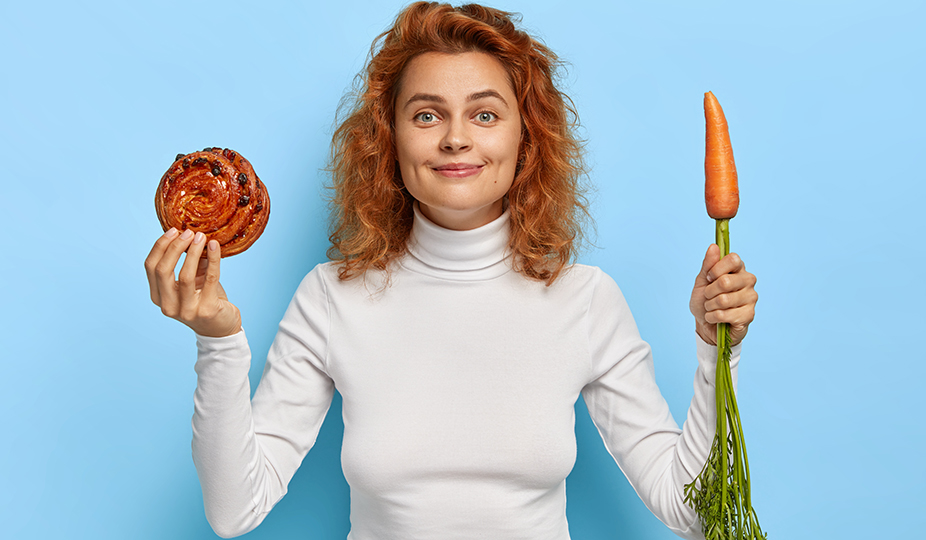
Let’s examine why a fertility diet is crucial, what foods to eat, and what products to avoid. In the article, you will also find an IVF meal plan.
Reasons to Follow a Healthy Regimen during Simulation
IVF and pregnancy are a significant strain on a woman’s body. During this period, hormonal changes occur, and the systems adapt to bearing a child. Thus, in addition to the usual functioning, the organs must provide the fetus with nutrients for growth and development. That’s why the main reason to start a balanced menu is to prepare yourself for this period and saturate your body with nourishing substances.
In a nutshell, healthy eating helps in the following:
- improve the quality and quantity of eggs;
- prepare the endometrium for embryo transfer and implantation;
- increase fertility;
- enhance physical and mental state.
IVF Success Tips Diet
The main pillars of eating during the simulation are balance and nutritiousness. It means the food should provide the daily norm of proteins, fats, and carbohydrates and nourish the organism with vitamins and minerals. Your menu should consist of natural ingredients that supply energy for the quality functioning of all organs. Another vital component is products rich in folic acid, iodine, potassium, calcium, and vitamins B, D, and E.
Check out a few more crucial IVF diet tips:
- Make your menu varied by including different products, such as fruits, vegetables, beans, cereals, seeds, nuts, eggs, meat, fish, and dairy products.
- Eat small portions several times a day. Snack when you feel hungry, not if you are bored or in a bad mood. The best snack before and after the embryo transferring process is nuts. They are a source of omega-3 acids and contain vitamin B, magnesium, and essential amino acids.
- Drink plenty of pure water. It is better to limit the consumption of black tea and coffee and replace them with weak green tea.
- Steam, boil, and bake dishes instead of frying them. Such cooking methods preserve nourishing elements.
- Consume only fresh and natural ingredients, without preservatives that impede the functioning of the organs.
The Best Foods for IVF Diet Menu – a Shopping Checklist
Following an IVF diet involves various foods. Here, you can find a shopping checklist of the items essential for your menu.
| Category | Products |
|---|---|
| Proteins | Chicken, Turkey, Fish (salmon, mackerel), Eggs, Lentils, Quinoa |
| Vegetables | Leafy greens (spinach, kale), Broccoli, Asparagus, Bell peppers, Carrots, Sweet potatoes |
| Fruits | Berries (blueberries, strawberries), Avocado, Oranges, Apples |
| Dairy | Low-fat milk, Cheese, Cottage cheese, Greek yogurt |
| Whole Grains | Brown rice, Oats, Whole wheat bread, Barley |
| Nuts and Seeds | Almonds, Walnuts, Flaxseeds, Chia seeds |
| Healthy Fats | Olive oil, Coconut oil, Avocado oil |
| Herbs and Spices | Turmeric, Ginger, Garlic, Cinnamon |
| Drinks | Green tea, Water |
What Products to Avoid before Embryo Transfer?
There are foods that reproductive specialists do not recommend consuming both in preparation and after fertilization. Some are acceptable in moderate portions, and some should be excluded. Let’s look at both cases.
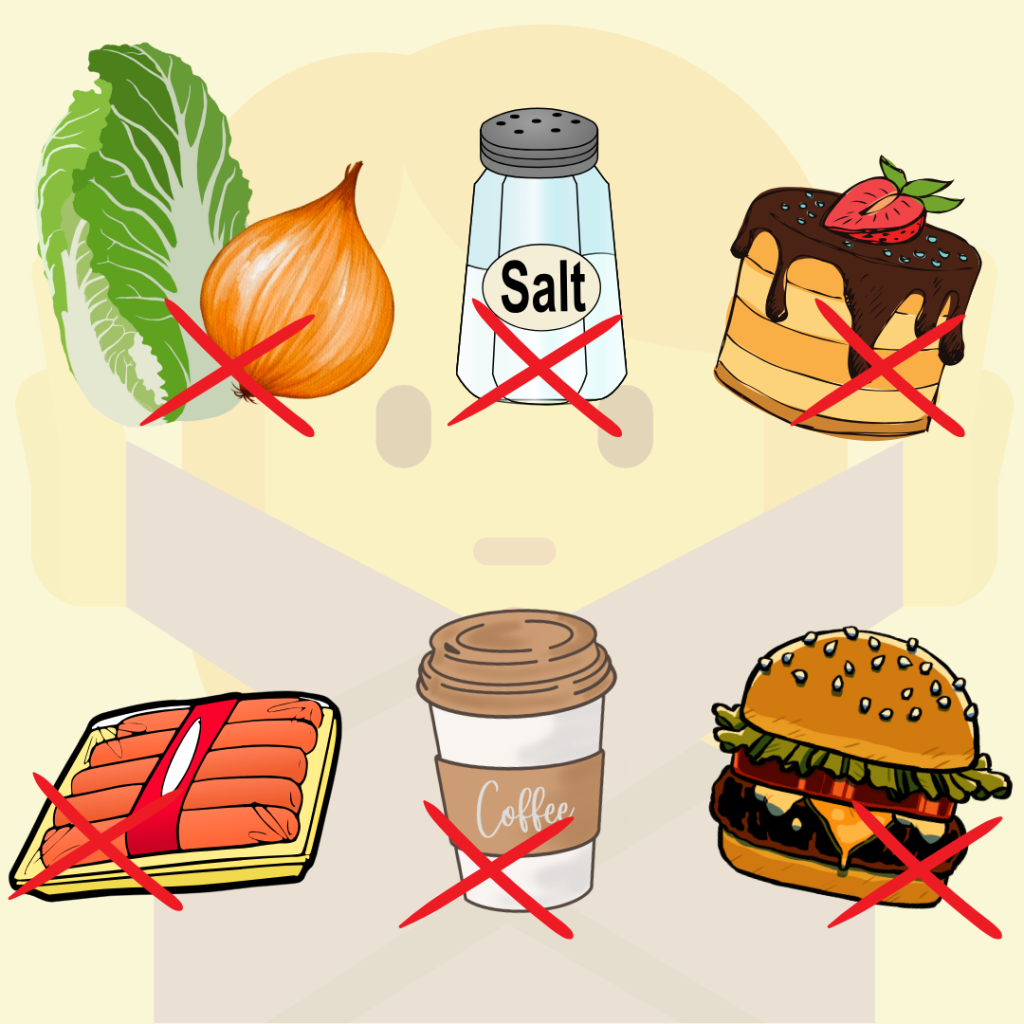
Non-recommended items:
- raw vegetables and fruits, e.g. cabbage, onions, and grapes (provoke fermentation in the stomach and intestines);
- overly salty dishes (retain water in the tissues and cause edema);
- flour and confectionery products, including cakes and white bread, (lead to gas formation);
- chocolate products, except for small amounts of dark chocolate, (increase blood sugar).
Food to escape during IVF:
- store-bought sausages, hot dogs, and cans (contain preservatives that can cause cellular mutations in the fetus);
- fast food (contains poorly digestible fats and leads to weight gain and fertility problems);
- coffee and black tea (reduce the likelihood of getting pregnant after the first program by up to 50%);
- alcohol (destroys the nervous system of the embryo and the mother).
The Best Diet for IVF
Patients who successfully conceived agree that the Mediterranean and Protein diets are the best solutions. They help to prepare the body for pregnancy and increase fertility by consuming the necessary nutrients and avoiding unwanted foods. Let’s take a look at each one.
Mediterranean Diet
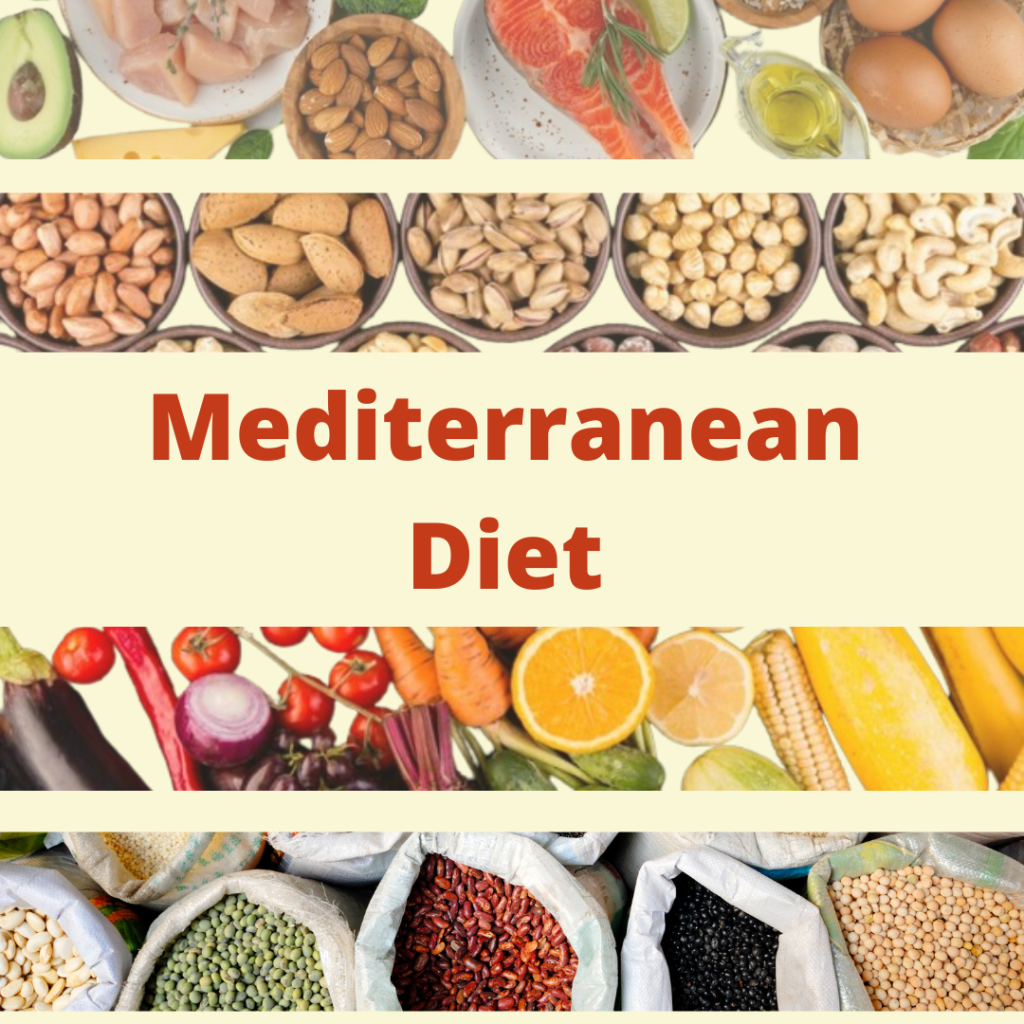
The Mediterranean plan is one of the most optimal nutritional programs for successful conception. This style is based on the cuisines of the Mediterranean countries, Italy, Greece, and Spain, and focuses on plant-based products and healthy fats. You are supposed to eat fresh fruits, vegetables, fish, poultry, whole grains, nuts, and legumes.
This meal system includes fish and poultry at least twice a week and vegetables and fruits daily. At the same time, it recommends giving up sweets and red meat. The nutritional principle includes dishes high in fiber, antioxidants, and vitamins. These substances are vital for successful conception.
The benefits are as follows:
- prevent inflammation, in particular the reproductive system, thanks to the high content of antioxidants in fruits and vegetables;
- improve the quality of sperm and eggs by saturating them with omega-3;
- avoid disorders and gene mutations of the future fetus by providing folic acid contained in cereals;
- maintain a balance of intestinal microflora.
Mediterranean IVF Diet Recipes
The Mediterranean style offers many fish and poultry dishes. They are great for fertility, tasty, and nutritious. In the video below, you can see 12 simple recipes that will become a good part of your menu.
Protein Meal System
A protein diet shows high results in enchanting the reproductive functions of the egg and improving fertility. The eating principle implies that you need to increase your carbohydrate and protein intake while reducing the amount of fat. It helps to improve digestion, reduce the likelihood of hyperstimulation syndrome, and increase fertility success.
In this method, it is critical to consider the origin of certain substances. For example, you should limit the amount of easily digestible carbohydrates, such as sweets and pastries. Instead, it is better to prefer complex structures that allow you to quickly and efficiently saturate your organism with energy. The sources of such carbohydrates are cereals, beans, and green vegetables.
This regimen provides the organism with building substances while preventing a woman from gaining extra pounds. The system includes the consumption of the following foods:
- low-fat dairy products;
- chicken and quail eggs;
- hard cheese;
- chicken, turkey, and rabbit meat;
- sea fish;
- nuts;
- dried fruits;
- cereals;
- fresh fruits and vegetables.
By starting a program, you get the following benefits:
- improving the quality of eggs due to the building block – protein – in sufficient quantities;
- avoiding edema and removing toxins;
- saturation with energy through the consumption of cellulose and complex carbohydrates;
- preventing nausea after embryo transfer, as the program involves frequent meals in small portions.
Protein IVF Diet Recipes
There are many yummy dishes rich in proteins and carbohydrates. Here’s one of those recipes.
Turkey and Spinach Stuffed Bell Peppers
| Ingredients for Stuffed Bell Peppers | Ingredients for Tomato Sauce |
|---|---|
| 4 large bell peppers | 1 can crushed tomatoes |
| 1 pound lean ground turkey | 1 teaspoon dried oregano |
| 1 cup quinoa, cooked | 1 teaspoon dried basil |
| 1 cup spinach, chopped | Salt and pepper to taste |
| 1 can black beans, drained and rinsed | |
| 1 cup cherry tomatoes, diced | |
| 1 cup shredded mozzarella cheese | |
| 2 cloves garlic, minced | |
| 1 teaspoon cumin | |
| Salt and pepper to taste | |
| Olive oil for drizzling |
Instructions:
Time needed: 1 hour.
- Heat the oven to 190°C.
- Cut the tops off the bell peppers and remove the seeds and membranes.
Lightly drizzle the outsides of the peppers with olive oil. Place them in a baking dish.
- In a large skillet, cook the ground turkey over medium heat until browned.
- Add minced garlic, cumin, salt, and pepper to the turkey. Stir well.
- Combine the cooked turkey, quinoa, chopped spinach, black beans, diced cherry tomatoes, and shredded mozzarella cheese.
- Spoon the turkey and quinoa mixture into each bell pepper, pressing down gently.
- Mix crushed tomatoes, oregano, basil, salt, and pepper in a separate bowl to create the tomato sauce.
- Pour the tomato sauce over the stuffed peppers.
- Cover the baking dish with aluminum foil and bake for 25-30 minutes.
- Remove the foil and bake for 10-15 minutes or until the peppers are tender.
- Serve the stuffed bell peppers garnished with chopped fresh herbs if desired.
IVF Diet Plan PDF Download for Free
When choosing foods 🥞🧇🫐🍒🥐 for stimulation and conception, it is vital to consider not only a clearly defined program but also individual characteristics, in particular allergies, intolerances, or preferences.
We offer a carefully prepared IVF meal plan for the week with recipes for breakfast, lunch, dinner, and snacks. You will find advice and prohibitions to help you create a balanced nutrition system. You can download the PDF file from the link below.
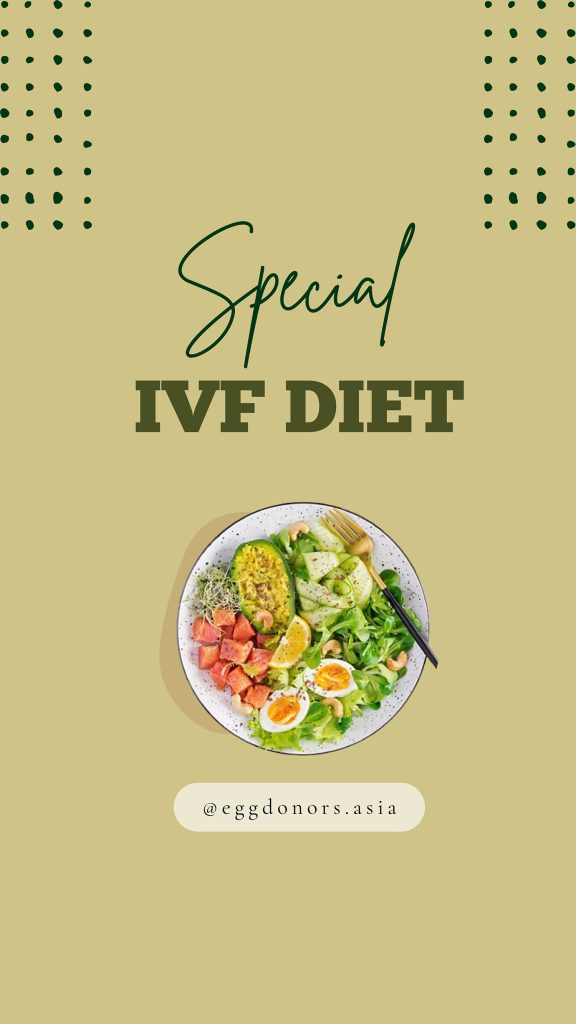
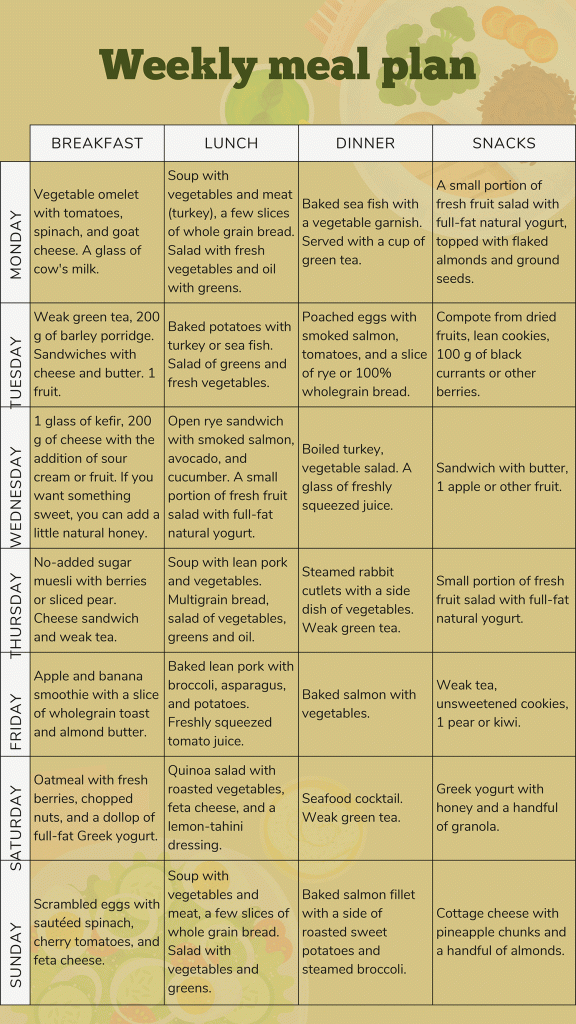
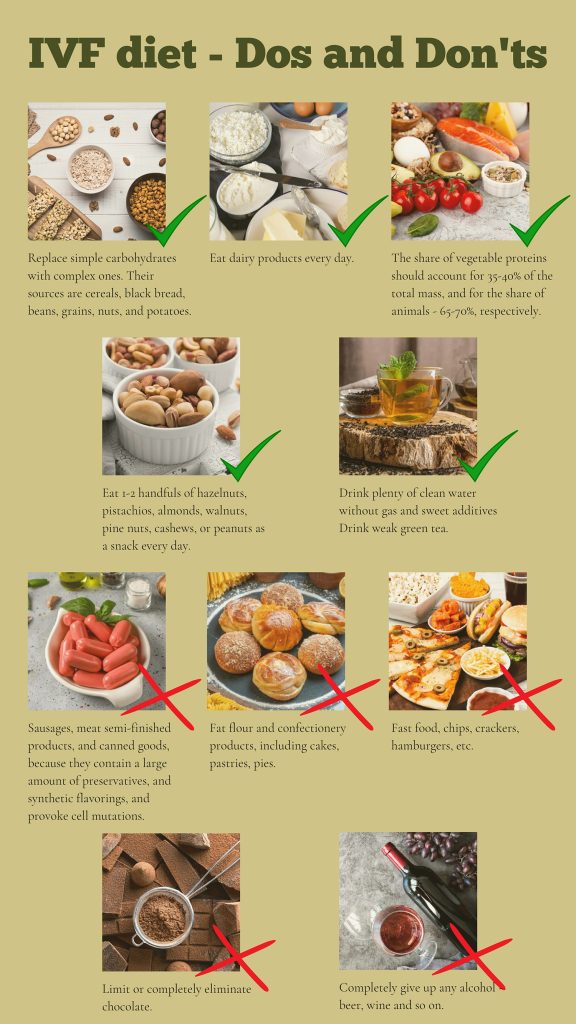
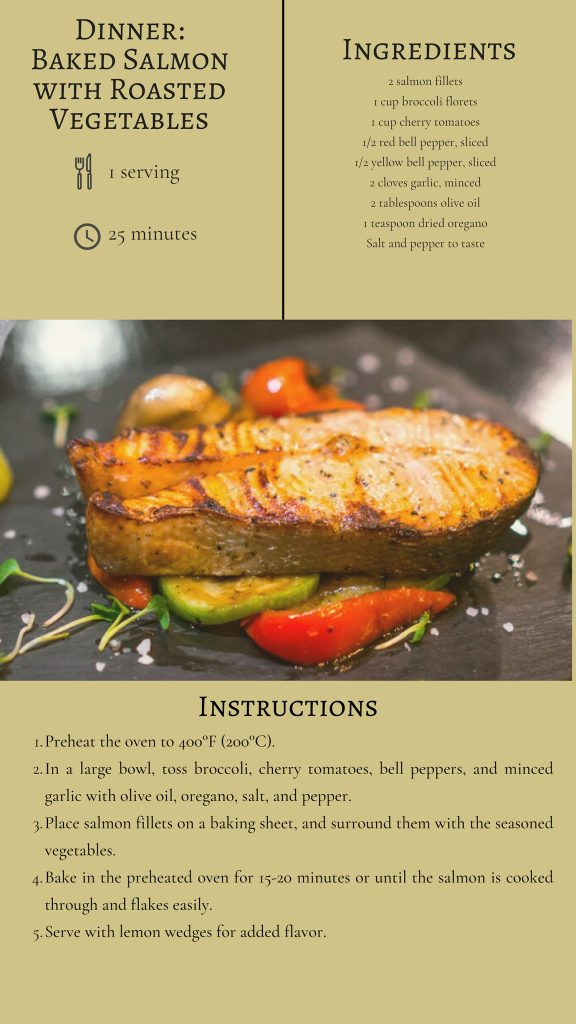
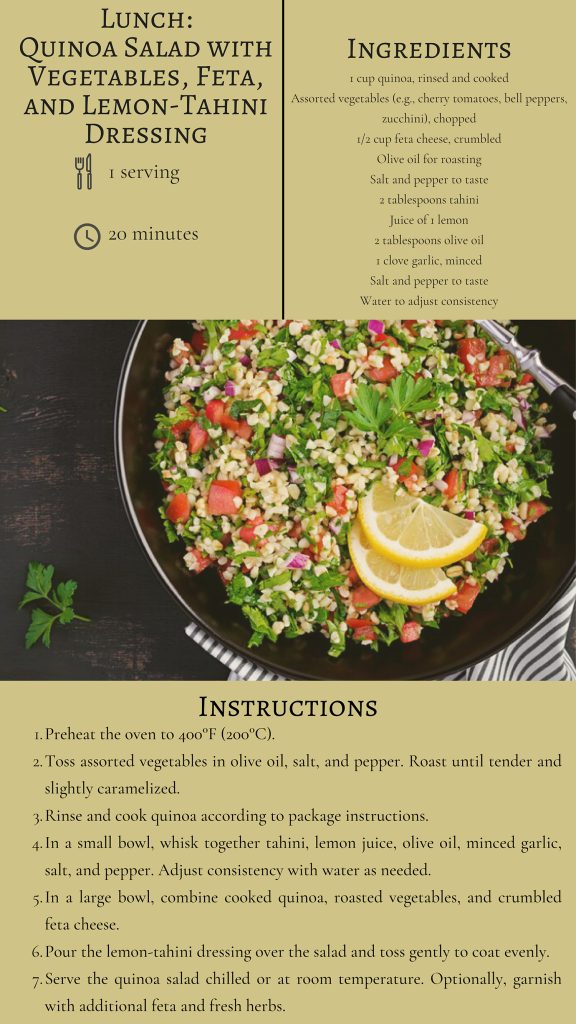
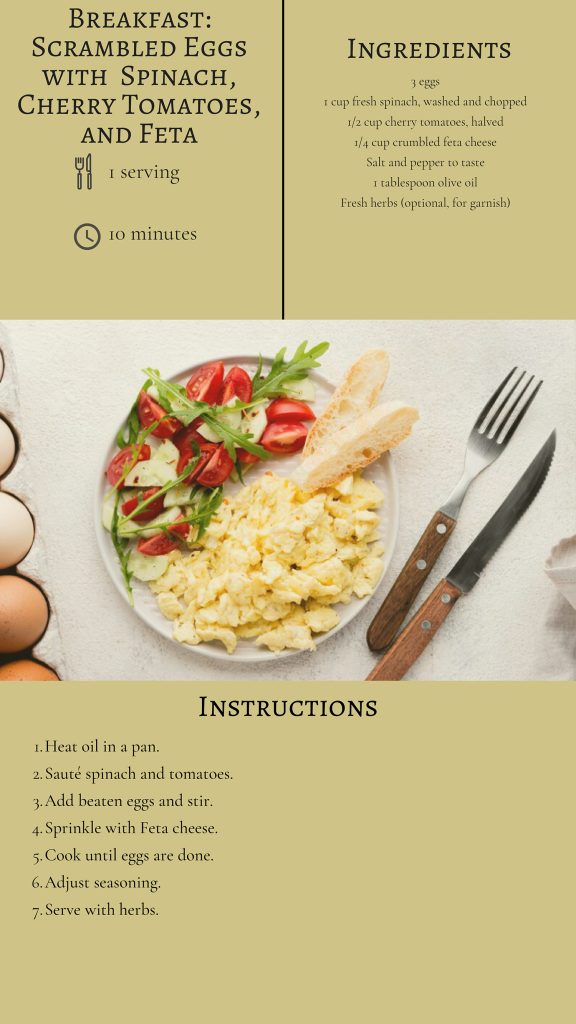
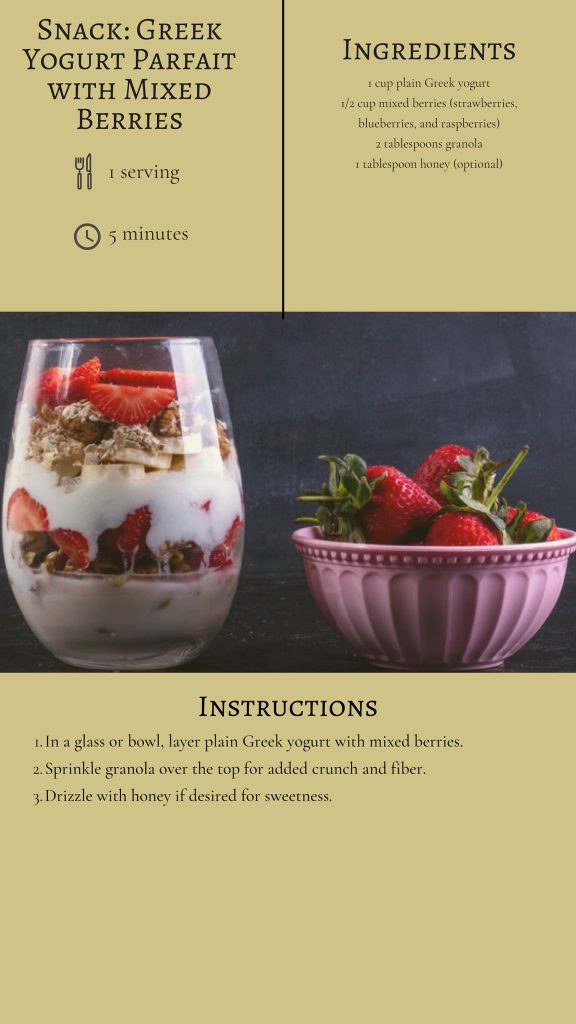
IVF Diet FAQ
Nutrition after embryo implantation is almost similar to a plan during preparation for conception. You should eliminate harmful and difficult-to-digest foods to prevent problems, including ovarian hyperstimulation.
If you follow a diet not related to any chronic disease, then it should be abandoned at least 1-2 weeks before the start of stimulation. It especially applies to programs for weight loss because they cannot provide the necessary substances and reduce the chances of successful conception.
Yes. Plant-based foods can provide essential nutrients to increase fertility. If you are a vegetarian, you should organize your menu in such a way that you get your daily intake of proteins, fats, and carbohydrates.
Final Words
To sum up, the IVF diet is a way to bring the body into a healthy state and provide all the substances for successful stimulation and pregnancy. You don’t have to follow a strict meal plan, but your diet should be well-balanced and nutritious. Your individual program should consider your characteristics and preferences and not be a burden but a pleasant part of the day.
If you have additional questions about an individual IVF treatment or want to start a program, feel free to contact our specialists to clarify all the details.